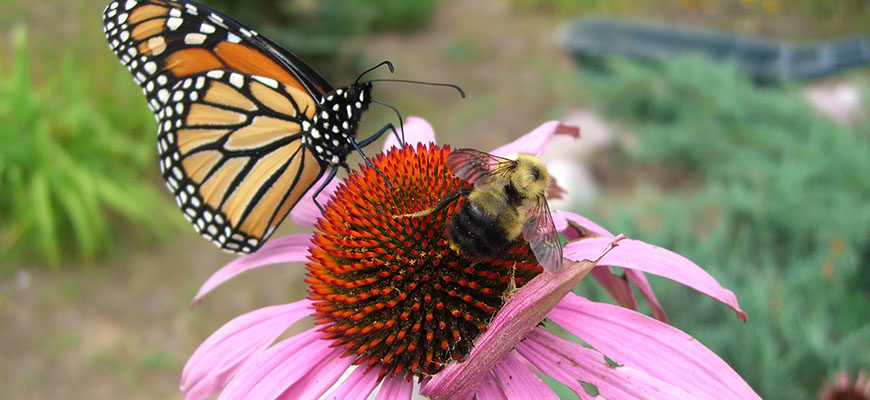Pollinators have POWER.
Where they spread pollen, they spread life. They give life to flowers by helping them reproduce. They even help provide for humans. Many fruits and vegetables — about 1/3rd of the world’s food supply — come from flowers that are pollinated. Apples, grapes, and even tomatoes would disappear from stores if we didn’t have bees, butterflies, and other pollinators.
They Help Us Everyday. Can You Help Them?
Insects are powerful. But they are also vulnerable. Habitat loss and pesticide use weaken pollinators and beneficial bugs and reduce their populations. What can you do to help?
- Avoid overuse of pesticides. Pesticides can kill pollinators and harm bugs that are only there to help. Try natural ways to get rid of your pests — like introducing beneficial bugs!
- Plant Native Gardens. Native flowers from Kentucky will grow easier and provide the best habitat for pollinators. A local nursery can help you to select the right native plants for your yard.
- Don’t mow as much. Kentucky lawns are often home to dandelions, violets, and purple deadnettle. Allow these flowers to bloom for a while before mowing them, especially in the early spring, when emerging pollinators need food.
- Support legislation that respects the environment and natural habitats. Even small creatures like pollinators need BIG habitats. Large, publicly-owned preserves, forests, and parks are critical for Kentucky’s biodiversity.
- Become a Monarch Way Station! Click here to find out how.
Want to learn more about butterflies and how to help them? Visit the websites below.
Idlewild Butterfly Farm – Our butterfly exhibit partner
Butterfly Website – Fun butterfly information and activities
National Fish and Wildlife Foundation Monarch Butterfly Conservation Fund
Monarch Watch – More information about creating your own Monarch W10aystation

